In need of some movie magic for your next gathering or just craving some good ol’ nostalgia? Look no further than “Zelig Movie Quotes” – your go-to source for an extensive collection of iconic movie quotes. From the timeless classics to the latest blockbusters, this product compiles a wide range of memorable lines from various films. Alongside these movie quotes, find detailed descriptions of the plots and characters for an even deeper appreciation of your favorite flicks. Get ready to impress your friends with your knowledge of cinema and relive the magic of these beloved films with “Zelig Movie Quotes”!

Plot
Introduction to Leonard Zelig
Leonard Zelig, the protagonist of the film “Zelig,” is an ordinary individual with an extraordinary ability. Introduced to the audience as a seemingly ordinary man, Leonard’s uniqueness lies in his uncanny ability to physically transform himself to fit in with any social setting he finds himself in. This rare ability soon catapults him into the public eye, making him a cultural sensation and subject of fascination.
Zelig’s extraordinary ability
Leonard Zelig’s remarkable talent for transformation is the crux of the film’s narrative. It is this ability that sets him apart from the rest of society and ultimately propels him into the limelight. With each social situation he encounters, Zelig adopts the physical characteristics, mannerisms, and even personalities of those around him, allowing him to blend seamlessly into various social circles. This chameleon-like quality both astounds and bewilders all who encounter him.
Zelig’s relationship with Dr. Eudora Fletcher
Dr. Eudora Fletcher, a renowned psychologist, becomes fascinated by Leonard Zelig’s unique condition and takes him under her wing for scientific study. Throughout the film, Dr. Fletcher delves into the medical and psychological aspects of Zelig’s abilities, attempting to understand the mechanisms behind his transformations. As Zelig’s primary confidante and advocate, she plays a critical role in navigating his journey and championing his cause.
Zelig’s impact on society
Leonard Zelig’s ability to effortlessly blend into any social circle sparks a media frenzy and captivates the public’s attention. As he increasingly gains notoriety, his impact on society becomes more pronounced. People from all walks of life are both mesmerized and confounded by his remarkable transformations, and Zelig unwittingly becomes an emblem of cultural fascination. His presence influences popular culture, psychology, and medical fields, as his case raises questions about identity, conformity, and the limits of human adaptability.
Characters
Leonard Zelig
Leonard Zelig is the enigmatic and central character of the film. Gifted with his chameleon-like abilities, he becomes a cultural phenomenon, inadvertently captivating the public’s imagination. Initially portrayed as an average, unremarkable man, Zelig’s transformations allow him to navigate various social scenarios, leading to both personal and societal consequences.
Dr. Eudora Fletcher
Dr. Eudora Fletcher, an esteemed psychologist, is captivated by Leonard Zelig’s unique condition. She takes on the role of Zelig’s confidante, studying his transformations and attempting to ascertain the cause and implications of his abilities. Driven by both scientific curiosity and a personal connection with Zelig, Dr. Fletcher’s perspective offers insight into the challenges and ethical dilemmas surrounding Zelig’s case.
Dr. Milton Kudsenbach
Dr. Milton Kudsenbach serves as Leonard Zelig’s physician in the film. Astounded by Zelig’s condition, he proclaims him a “medical marvel.” Dr. Kudsenbach provides medical insights and contributes to the scientific understanding of Zelig’s transformations.
Lorraine Dale
Lorraine Dale, a close friend of Leonard Zelig, is mesmerized by his extraordinary abilities. Despite being aware of his transformations, Lorraine is both intrigued by and supportive of Zelig, making her one of his most significant allies and confidantes throughout his journey.
Fanny Brice
Fanny Brice, a renowned performer of the era, becomes entangled in Leonard Zelig’s whirlwind journey. Fascinated by his ability to become whoever he is near, Brice’s involvement with Zelig showcases the impact his transformations have on both individuals and the broader cultural context.
Charlie Chaplin
Comedic legend Charlie Chaplin has a memorable cameo in the film. As a notable figure in the entertainment industry, Chaplin’s presence highlights Zelig’s ability to assimilate into the world of famous personalities, further underscoring the film’s exploration of identity and social conformity.
Top Quotes
Leonard Zelig: “I have always tried to fit in.”
Leonard Zelig’s quote illuminates his relentless desire to belong, to seamlessly integrate into different social environments. This sentiment encapsulates his plight and serves as a reflection of the human desire to be accepted and understood.
Dr. Eudora Fletcher: “You are a chameleon.”
Dr. Eudora Fletcher’s astute observation conveys her recognition of Leonard Zelig’s unique ability and encapsulates the essence of his character. Her statement encapsulates Zelig’s transformative nature and the reasons behind his heightened social fascination.
Dr. Milton Kudsenbach: “Zelig is a medical marvel.”
Dr. Milton Kudsenbach’s awe-struck statement emphasizes the scientific and medical intrigue surrounding Leonard Zelig’s condition. This quote draws attention to the profound impact Zelig’s abilities have on multiple fields of study and their potential implications.
Lorraine Dale: “Zelig never fails to fascinate.”
Lorraine Dale’s quote highlights the magnetic allure of Leonard Zelig’s transformations. Despite being aware of Zelig’s condition, Lorraine’s ongoing fascination speaks to the enduring and captivating nature of his ability.
Fanny Brice: “He becomes whoever he is near.”
Fanny Brice’s observation succinctly captures the essence of Leonard Zelig’s transformative abilities. Her statement emphasizes Zelig’s uncanny capacity to assume the characteristics and personas of those around him.
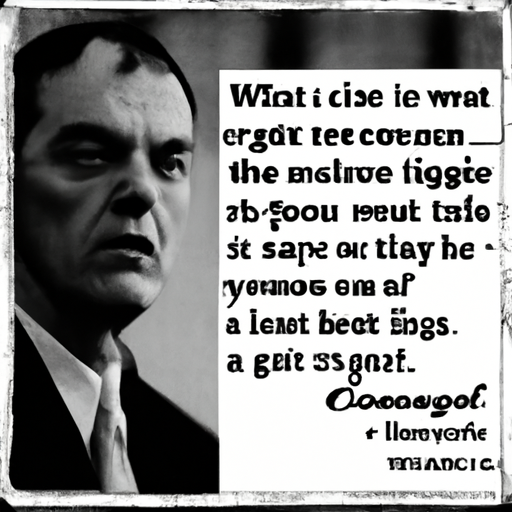
Zelig’s Transformation
Chameleon-like abilities
Leonard Zelig’s chameleon-like abilities are at the core of his character and the film’s narrative. He possesses an exceptional talent for assimilating into any social circle, adopting the appearance, mannerisms, and even thought processes of those around him. This unique skill sets him apart and drives the fascination surrounding him.
Blending into different social circles
Throughout the film, Zelig seamlessly transitions between social scenarios, blending effortlessly into various cultures, classes, and backgrounds. His multifaceted adaptability begs questions about the nature of human identity, social conformity, and the impact of environment on individual behavior.
Impersonating famous personalities
Leonard Zelig’s transformations extend beyond everyday interactions. He even assumes the physical and behavioral traits of famous personalities, cementing his status as a cultural phenomenon. This aspect of his ability highlights society’s obsession with celebrity and the malleability of human behavior.
Physical changes during transformations
A crucial element of Zelig’s transformations is the accompanying physical changes. His body morphs to resemble individuals in his vicinity, allowing for an incredibly convincing portrayal of those around him. These physical metamorphoses bring an added layer of realism to his ability, enhancing the intrigue and wonder surrounding his character.
Impact on Society
Zelig as a cultural phenomenon
Leonard Zelig’s extraordinary abilities catapult him into the spotlight, transforming him into a cultural phenomenon. People from all walks of life are captivated by his transformative nature, as he serves as a reflection of society’s fascination with identity, social integration, and the desire to fit in.
Media frenzy surrounding Zelig
The media frenzy surrounding Leonard Zelig’s rise to fame is a central aspect of his impact on society. News outlets, tabloids, and entertainment magazines extensively cover his story, fueling public curiosity and driving the relentless pursuit of information about his condition.
Influencing popular culture
Zelig’s influence extends far beyond the realm of curiosity and entertainment. The film explores the broader impact of his abilities on popular culture, shedding light on how his transformations influenced societal trends, fashion, and even the perception of celebrity.
Psychological and medical interest in Zelig’s condition
Leonard Zelig’s case sparks intense interest within the fields of psychology and medicine. Professionals seek to understand the physiological, psychological, and sociological factors underlying his unique ability. Zelig’s condition becomes a subject of research and debate, prompting a reevaluation of existing theories on identity and the limits of human adaptation.
Dr. Eudora Fletcher’s Perspective
Treatment and study of Zelig
Dr. Eudora Fletcher assumes the responsibility of treating and studying Leonard Zelig. With a blend of clinical expertise and personal investment, she delves deep into the medical intricacies of his condition, striving to unravel the mystery behind his chameleon-like abilities. Dr. Fletcher’s perspective offers valuable insights into the ethical dilemmas and considerations accompanying her professional involvement.
Challenges faced by Dr. Fletcher
As the primary caretaker and researcher of Leonard Zelig’s case, Dr. Fletcher navigates a plethora of challenges. These challenges include the public’s relentless curiosity, the pressures of scientific scrutiny, and the ethical implications of studying an individual with such a unique ability. Dr. Fletcher’s struggles showcase the complex nature of understanding and managing extraordinary cases like Zelig’s.
Ethical concerns
Dr. Eudora Fletcher grapples with numerous ethical concerns throughout her study of Leonard Zelig. The line between scientific inquiry and exploitation becomes blurred as society’s voracious appetite for information about Zelig threatens to infringe upon his personal privacy and autonomy. Dr. Fletcher’s mindfulness of these ethical considerations illuminates the broader ethical discourse surrounding unique individuals in society.
Personal connection with Zelig
Beyond her professional involvement, Dr. Eudora Fletcher develops a personal connection with Leonard Zelig. This connection becomes a source of emotional conflict as she balances her professional obligations with genuine care and concern for Zelig’s well-being. Dr. Fletcher’s perspective adds a layer of complexity to the film’s exploration of the complexities inherent in studying and caring for unique individuals.
Zelig’s Relationships
Friendships and romantic involvements
Leonard Zelig’s unique ability to transform himself impacts both the friendships he forms and the romantic involvements he experiences. Zelig’s ability elicits both intrigue and skepticism from those around him, leading to complicated and ever-evolving dynamics in his personal relationships.
Impact of Zelig’s condition on relationships
The transformative nature of Leonard Zelig’s condition shapes the dynamics of his relationships. The people in Zelig’s life grapple with the uncertainty of his true identity and struggle to understand the nature of his transformations. This uncertainty and the resulting strain become significant challenges that impact the depth and longevity of Zelig’s connections with others.
Lorraine Dale and Zelig’s complicated bond
Lorraine Dale, a close friend of Zelig, embarks on a complicated journey with him, becoming a steadfast supporter. However, their bond is subject to the fluctuations and complexities of Zelig’s transformations. The nature of their friendship and the challenges they face together showcases the intricate dynamic between an extraordinary individual and those closest to them.
Dr. Fletcher’s professional and personal relationship with Zelig
Dr. Eudora Fletcher’s relationship with Leonard Zelig goes beyond their scientific collaboration. Their personal connection is rooted in profound mutual understanding, shaped by the complexities of Zelig’s transformative abilities. Dr. Fletcher’s perspective unveils the myriad of emotions and intricacies that arise when studying and caring for those with extraordinary conditions.
Cinematic Techniques
Mockumentary-style storytelling
The film “Zelig” employs a mockumentary-style storytelling approach to immerse viewers in Leonard Zelig’s world. By blending elements of fiction and non-fiction, the film creates a seamless blend of realism and entertainment, elevating the audience’s connection to the narrative.
Use of archival footage
To enhance the authenticity of the film’s historical setting, “Zelig” incorporates the use of archival footage. This technique seamlessly integrates Leonard Zelig’s character into real-life events and historical settings, blurring the lines between reality and fiction.
Editing and visual effects
The film’s expert editing and visual effects play a pivotal role in showcasing Leonard Zelig’s transformations. Seamless transitions, overlays, and split-screen techniques enhance the authenticity of Zelig’s metamorphoses. These cinematic choices reinforce the believability of Zelig’s ability, deepening the audience’s sense of awe and fascination.
Narration and voiceovers
The film utilizes narration and voiceovers to provide context, commentary, and insight into Leonard Zelig’s journey. This narrative device guides the audience, offering glimpses into Zelig’s psyche and motivations, while also framing the events within a broader societal context.
Comedic Elements
Satire and parody
“Zelig” employs satire and parody as a means to explore broader social and cultural themes. The film’s humorous approach serves as a vehicle for social commentary, inviting the audience to reflect on the absurdity of societal norms, conformity, and the human desire for acceptance.
Humorous situations
Leonard Zelig’s transformative abilities often give rise to a range of comedic situations. From mistaken identities to comical interactions between Zelig’s transformed personas and those around him, the film uses humor to both entertain and shed light on the complexities of Zelig’s character and condition.
Wordplay and comedic timing
The film subtly incorporates wordplay and comedic timing to heighten the humor and wit within “Zelig.” From clever quips to double entendres, these comedic elements infuse the film with playful humor, adding depth and enjoyment to the viewing experience.
Social commentary through humor
“Zelig” employs humor as a vehicle for social commentary, exposing the societal obsession with conformity and the struggle for individual identity. The film’s comedic elements serve as a lens through which the audience can critically examine human behavior and the consequences of societal pressures.
Reception and Legacy
Critical acclaim and awards
Upon its release, “Zelig” garnered critical acclaim for its innovative storytelling, comedic elements, and social commentary. The film was praised for its seamless blending of fiction and archival footage, earning several nominations and awards, including recognition for Woody Allen’s direction and the performances of the cast.
Cult following
Over the years, “Zelig” has developed a dedicated cult following, drawn to its unique storytelling style, witty humor, and thought-provoking themes. The film’s enduring popularity among cinephiles further solidifies its legacy and demonstrates its resonance with audiences.
Influence on subsequent films
“Zelig” has had a lasting impact on the cinematic landscape, inspiring and influencing subsequent films that explore similar themes of identity, conformity, and the human desire for acceptance. Its innovative narrative techniques and distinctive blend of comedy and social commentary have left an indelible mark on the film industry.
Zelig’s lasting impact on pop culture
Beyond its contributions to cinema, “Zelig” has had a lasting impact on pop culture. The film’s exploration of identity, social integration, and the pressures of conformity resonates with a wide audience, generating ongoing discussions and reflections on these timeless themes. Leonard Zelig’s character remains an iconic symbol, reminding us of the complexities inherent in our desire to fit in and the importance of embracing our true selves.







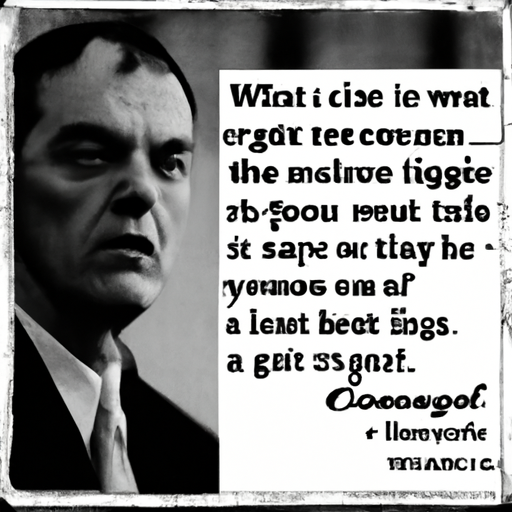
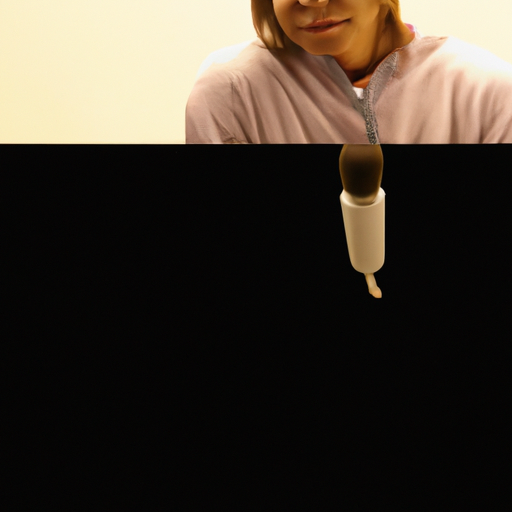

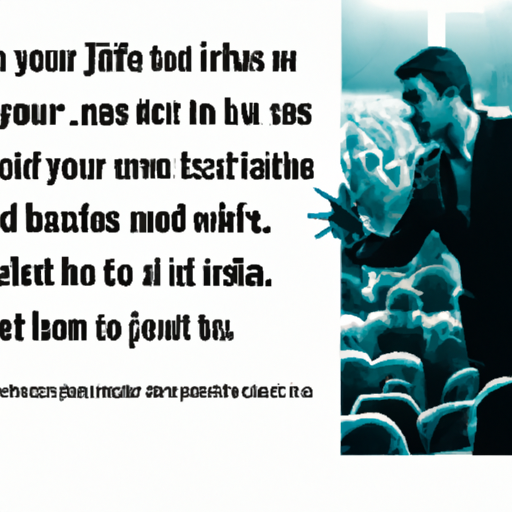
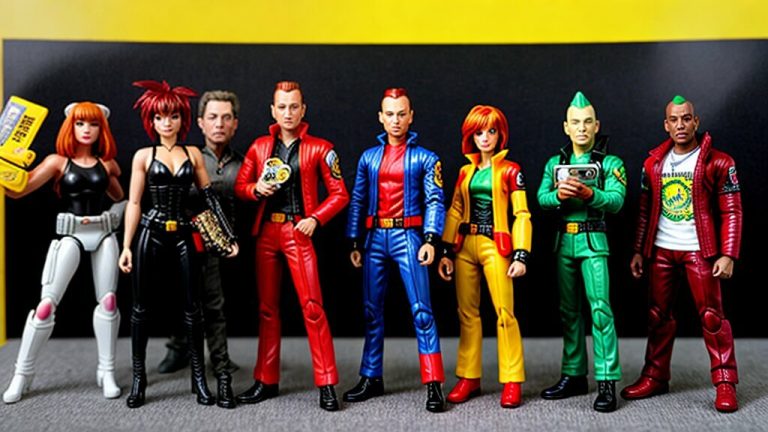


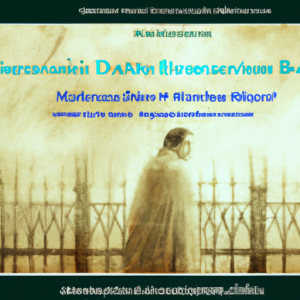




+ There are no comments
Add yours